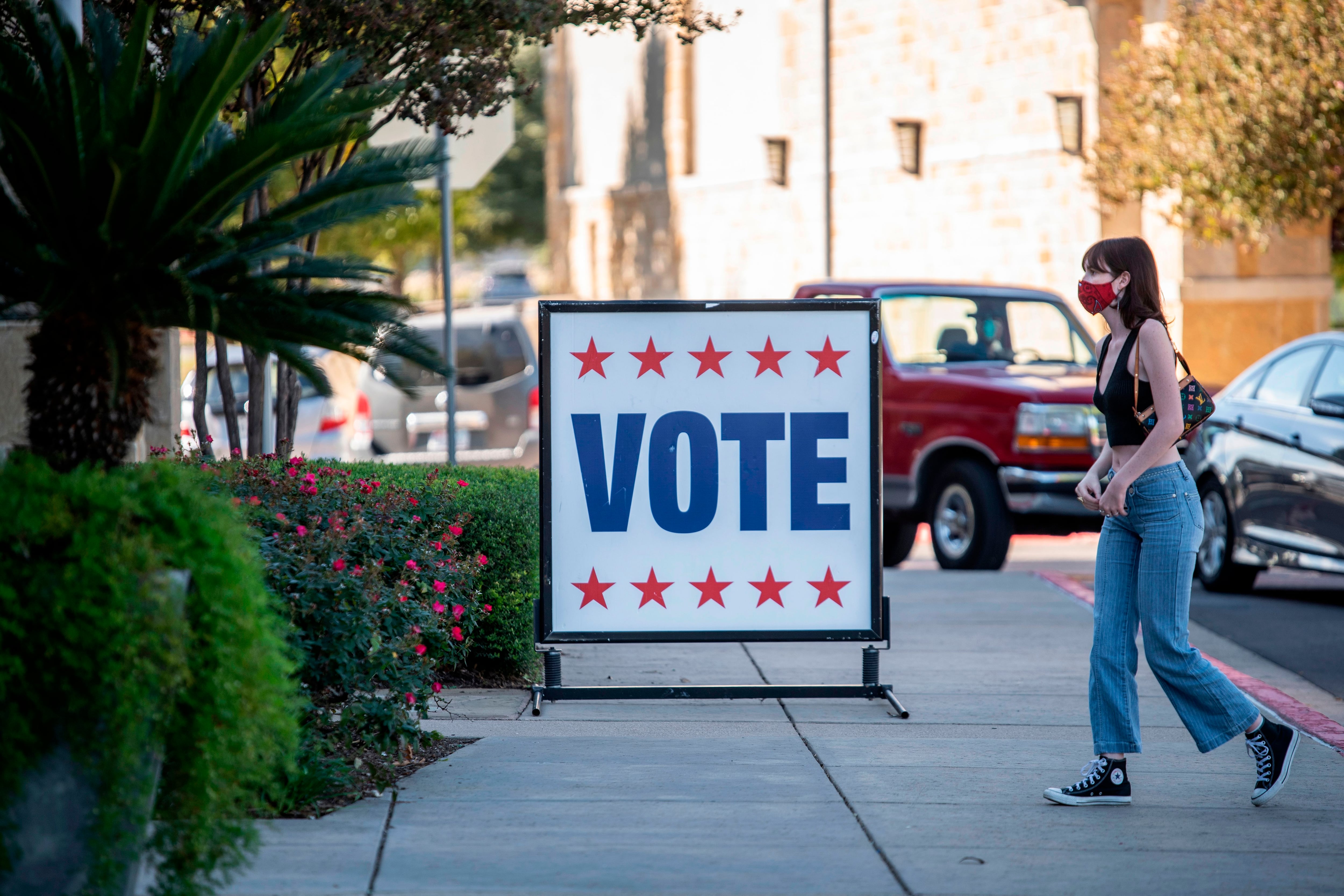The head of the Potter County, Texas, Republican Party has reversed his decision to hold a separate primary in March with hand-marked, hand-counted ballots. Party Chairman Dan Rogers said in a statement Thursday that he made the decision after the county Commissioners Court rejected a resolution he’d introduced, which would have eliminated vote centers and mandated hand-marked and hand-counted ballots in every county-run election.
Rogers faced intense criticism for his decision to hold a separate Republican primary on Election Day — with voters casting paper ballots that would be counted by a cadre of Republican Party volunteers — after Votebeat reported on his plans earlier this month. State and county officials said the plan would confuse voters and heightened the risk of fraud, as Rogers refused to use e-pollbooks to ensure no voter cast two ballots.
Because the commissioners did not approve Rogers’ plan, the county would have run early voting as usual, separately from the GOP’s in-person Election Day voting at precincts. Texas law allows parties to run their own primaries, so long as the party comports with the Texas election code — something state officials said would be difficult for Rogers to do. In his statement, Rogers acknowledged his approach “would require Republican voters to use two different voting methods, electronic for early voting and hand-marked ballots for election day, each with different polling locations,” which would confuse voters. “We no longer seek to hold a separate primary due to the inability to fulfill our purpose.”
Rogers said the county had chosen “coders over voters” and that the party would continue its Patriots for Paper campaign. The campaign aims to “eliminate electronic voting machines and return to paper ballots, as our Founding Fathers intended.” (The Founding Fathers expressed no preference for voting methods, and votes were largely cast by voice until the late 1800s.) Potter County currently uses paperless machines — known as direct-recording electronic machines, or DREs — made by Hart InterCivic. Rogers falsely asserts those machines can be used to determine how individual voters cast their ballots and are easy targets for cyberintrusion. The county plans to have the machines retrofitted to produce paper backups, but these changes will not be made in time for the 2022 primary.
Melynn Huntley, Potter County’s election administrator, said she was “relieved” by the decision — Rogers signed paperwork Tuesday contracting with the county to run the entire election. “These last two days are the first days I haven’t had a headache,” she said. “I was concerned about the voters, I was concerned about the candidates. I know this system, so I was definitely relieved when he told us he would contract with us.”
At the Commissioners Court meeting Monday, Rogers and a handful of supporters — many of whom wore “Let’s Go Brandon” gear being sold by the county party as a fundraiser — turned up to support Rogers’ measure. Several other county residents testified against the proposal, including one sitting judge who is on the ballot for re-election in 2022 as a Republican. Prior to the hearing, the county attorney told the commissioners that they were under no obligation to vote on the measure, as it was submitted by a member of the public, and did not need to hold any discussion. While the commissioners opted to allow the discussion, they ultimately chose not to vote on the measure and ended the meeting after nearly two hours of debate.
Judge Pamela Sirman, who presides over the 320th District Court in Amarillo, said she would question Rogers’ neutrality if he were involved in a ballot-counting process because her current primary opponent, Steven Denny, paid Rogers $2,000 for campaign work in 2017, when Denny ran unsuccessfully for the local court of appeals. “He’s the head of our party,” she said. “The idea of ballots being counted by Mr. Rogers upsets me — I don’t feel like that’s fair.”
“So, you’re saying I’m not honest?” Rogers shouted at her. Rogers testified several times during the course of the two-hour meeting, routinely making false statements about voting procedure and overstatements about the extent of his party’s support for his proposal. He said that “every single one” of his 24 precinct chairs were in favor, though nearly half of the seats are currently vacant. He also falsely claimed Williamson County in Central Texas had been required to do a recount after using the same machines Potter County uses, though Williamson County uses different machines and has never been ordered to do such a recount.
Rogers also railed against Hart InterCivic for displaying the word “Democracy” on its homepage. “We don’t live in a Democracy,” Rogers said. “[That] means they are against our republic, and that is totalitarianism.” The speech received vigorous applause from a single audience member.



